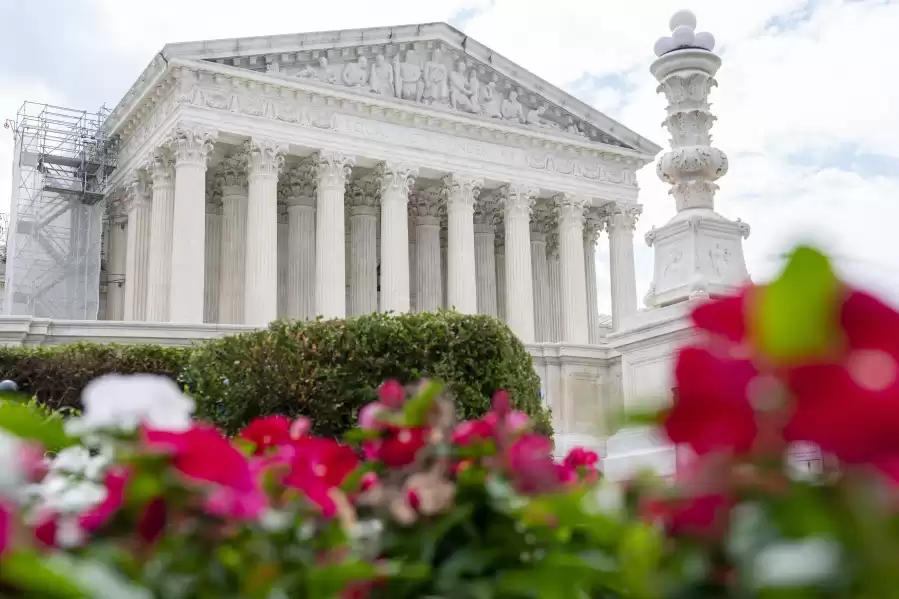Supreme Court dismisses groundbreaking legislative theory, while preserving potential for 2024 election challenges
The US Supreme Court has rejected a controversial legal theory that could have changed the way elections are run across the country. The court ruled 6-3 that legislatures do not have absolute power in setting the rules of federal elections and can be second-guessed by state courts. However, the court also stated that state courts must act within "ordinary bounds" when reviewing laws governing federal elections. This has left the door open to more limited challenges that could increase the Supreme Court's role in deciding voting disputes during the 2024 presidential election.
The U.S. Supreme Court has made a significant ruling that has implications for future elections in the country. In a 6-3 decision, the court rejected the most extreme version of the independent state legislature theory, which argues that state legislatures have absolute power in setting the rules of federal elections and cannot be second-guessed by state courts. This ruling is seen as a victory for voting rights groups who have been concerned about the potential impact of this theory on democracy.
However, the court also stated that state courts must still act within "ordinary bounds" when reviewing laws governing federal elections. This means that there is still room for challenges to be made in federal courts if election lawsuits are lost in state courts. Critics of the theory argue that this leaves the door open for ideological and partisan judging to come into play.
Conservatives who have advocated for limits on the role of state courts in federal elections agree that the court's ruling did not settle the question of when state courts need to stay out of federal elections. They warn that this issue may only be resolved in a last-minute challenge during the 2024 presidential election.
The court is currently considering whether to hear another case that touches on similar issues, involving Ohio Republican lawmakers appealing a pair of state supreme court rulings directing them to draw fair congressional maps. This issue may also arise in other cases where state supreme courts overturn congressional maps, such as in Wisconsin.
The independent state legislature theory is based on the clause in the U.S. Constitution that states that state legislatures shall set the "time, place and manner" of elections for the U.S. Senate and House of Representatives. Advocates of the theory argue that this clause gives state legislatures ultimate power in federal elections.
The theory gained popularity among conservatives as Republicans gained more power in state legislatures. It was alluded to by conservative Chief Justice William Rehnquist in the landmark 2000 case Bush v. Gore. However, the theory has faced criticism and legal challenges, with Chief Justice John Roberts dismissing the argument that state supreme courts cannot overturn maps drawn by state legislatures.
While the court's ruling is seen as a victory for democracy advocates, some worry that the lack of clarity regarding the boundaries of state court decision-making may lead to constant litigation in the 2024 elections. It remains to be seen how this ruling will impact future voting disputes and the role of state courts in federal elections.











Comments on Supreme Court dismisses groundbreaking legislative theory, while preserving potential for 2024 election challenges